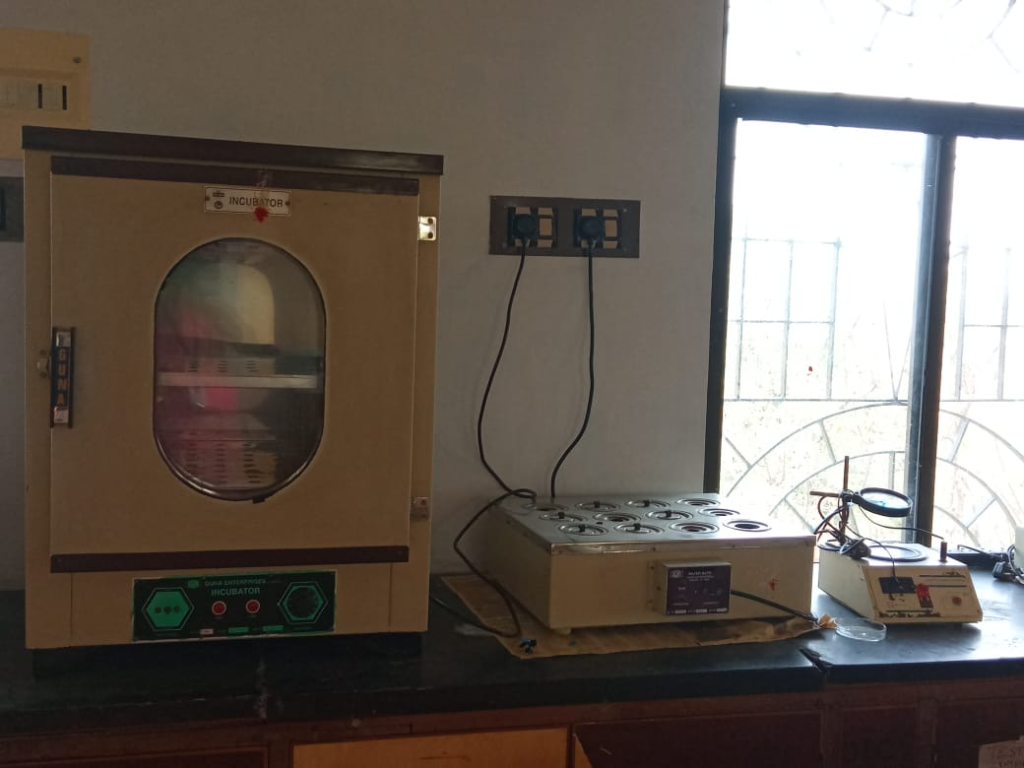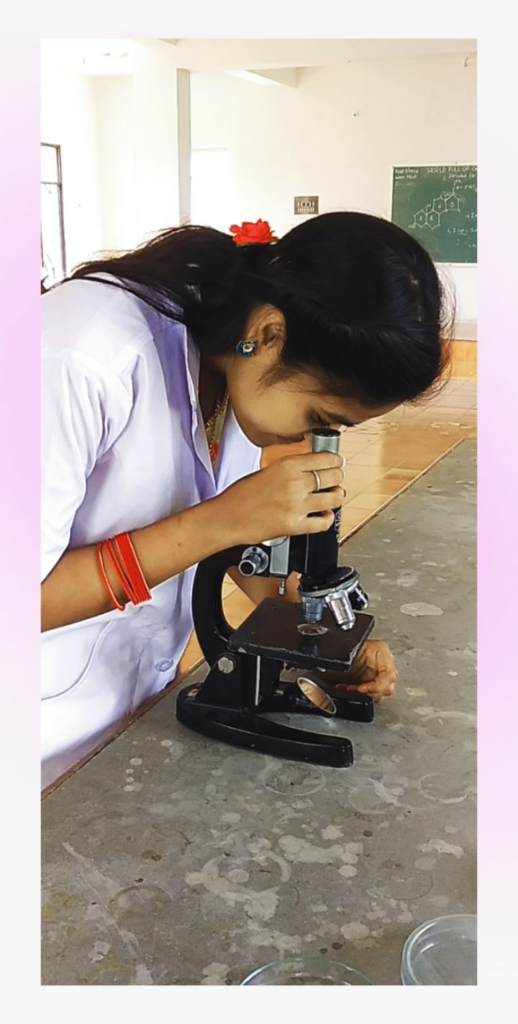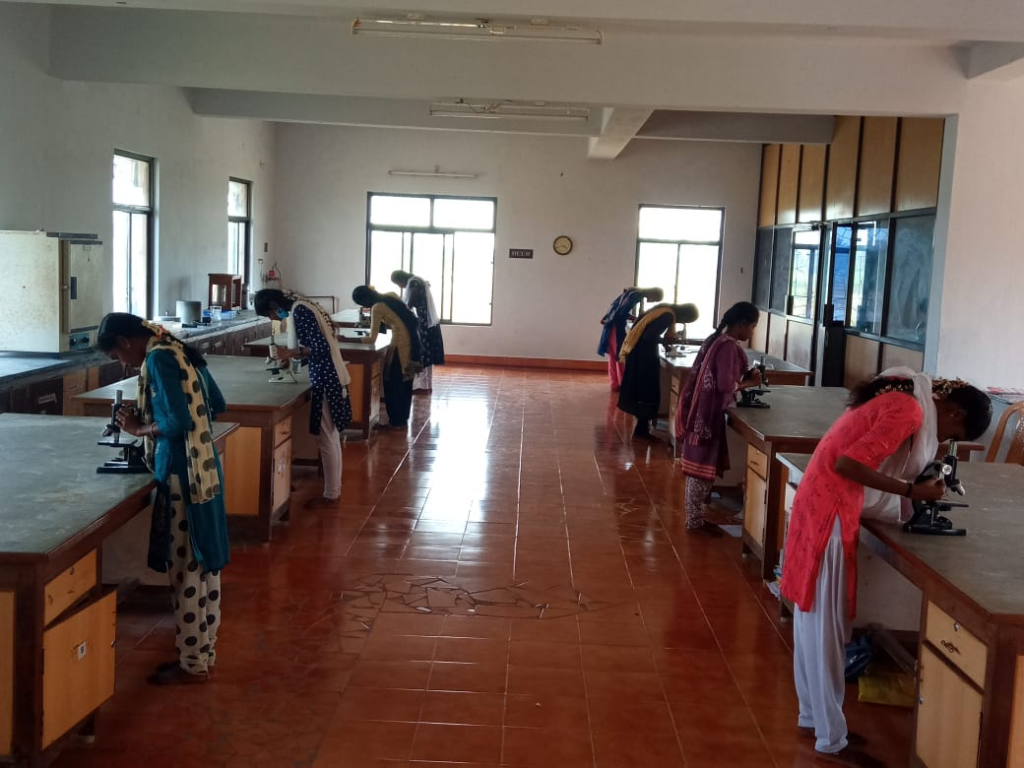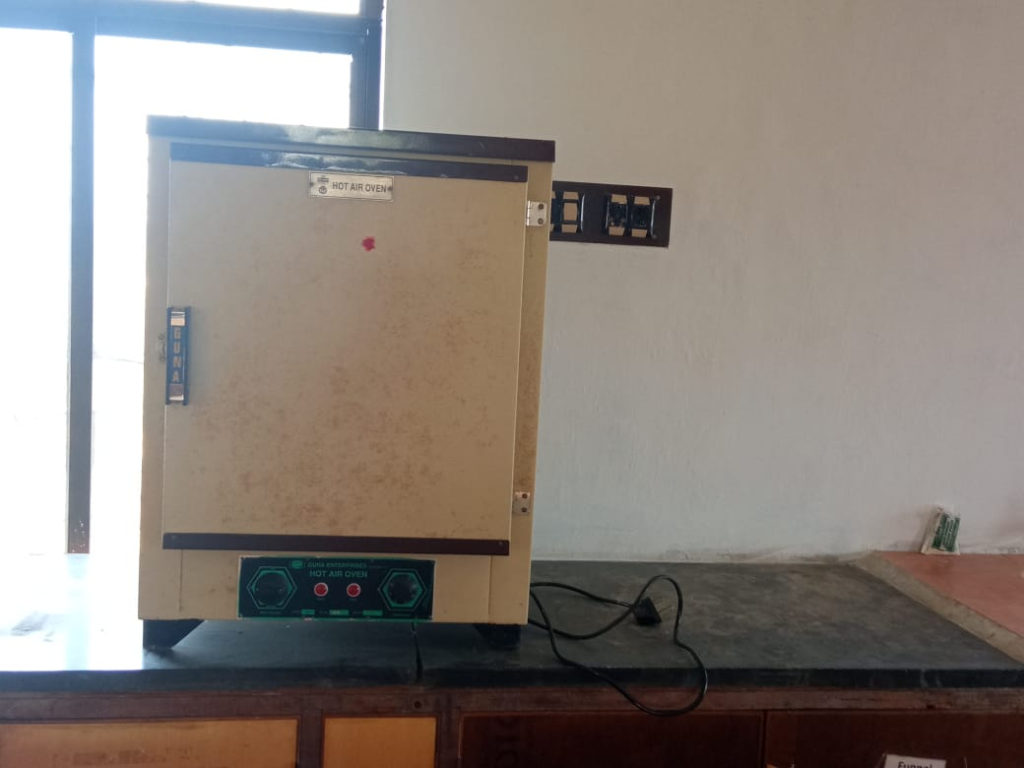
Microbiology Laboratory
A microbiology laboratory is a laboratory devoted to the culturing, examination, and identification of microorganisms including bacteria, fungi, yeasts, etc. The microbiology laboratory has a crucial role in effective infection prevention and control (IPC). We will explore the central roles of microorganisms in nature and in our daily lives. In this process of discovery, we will become adept with standard microbiological techniques that will allow us to investigate the structure and physiology of microorganisms. The various sub-disciplines of Microbiology including Bacterial Genetics, Bacteriology, Immunology, and Environmental and Applied Microbiology will be introduced.
Microbiology Laboratory Safety Rules
- 1. All materials and clothes other than those needed for the laboratory are to be kept away from the work area.
- 2.A lab coat or other protective clothing must be worn during lab. The lab clothing is not to be worn outside of the laboratory.
- 3. Clean the lab table before and after lab with the disinfectant solution provided.
- 4. Wash hands before leaving lab.
- 5. Any item contaminated with bacteria or body fluids must be disposed of properly. Disposable items are to be placed in the BIOHAZARD container. Reusable items are to be placed in the designated area for autoclaving prior to cleaning. Sharps are to be disposed of in the appropriate container.
- 6. Reusable items should have all tape and marks removed by the student before being autoclaved
- 7. Because organisms used in this class are potentially pathogenic, aseptic technique must be observed at all times. NO eating, drinking, application of cosmetics or smoking is allowed. Mouth pipetting is not allowed.
- 8. Cuts and scratches must be covered with Band-Aids. Disposable gloves will be provided on request.
- 9. Long hair should be tied back while in lab.
- 10. All accidents, cuts, and any damaged glassware or equipment should be reported to the lab instructor immediately.
- 11. Microscopes and other instruments are to be cared for as directed by the instructor.
- 12. It is the responsibility of the student to know the location and use of all safety equipment in the lab (eyewash, fire extinguisher, etc).
- 13. Cultures may not be removed from the lab. Visitors are not allowed in the lab.
- 14. Doors and windows are to be kept closed at all times.
Scope of Microbiology
Microbiologists are currently in high demand across a variety of industries and fields all over the world. They are not restricted to only one of them, here are the most sought-after fields and areas in which the importance of microbiology is evidently large:- Food Microbiology
- Environmental Science
- Healthcare and Medicine
- Genetic Engineering
- Biotechnology for Agrochemistry
- Boards for pollution control
- Biorefineries
- Hospitals
- Universities
- Research Centres
- Forensic Labs
Maintaining a Laboratory notebook
The lab notebook is a permanent, bound record of your work. Ideally it will last for many, many years and allow you to review the procedures exactly as they were performed on the day they were performed. Thus:- A permanent, black ballpoint pen should be used to make entries.
- All entries should be made immediately. Do not trust your memory.
- Entries should be legible and numbers and symbols should be unambiguous.
- The active voice should be used to clearly indicate who did the work.
- If you make a mistake, use a single line to mark off the mistake and initial.
- MICROBIOLOGY EQUIPMENTS
- CHEMICAL STORE ROOM
- LAMINAR AIR FLOW CHAMBER
- REFRIGERATOR
- CENTRIFUGE
- INCUBATOR




